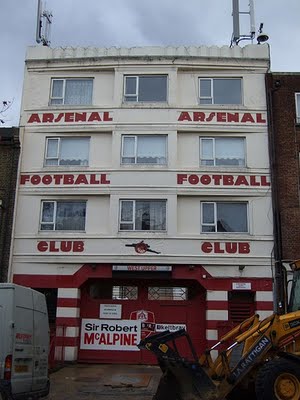- Arsenal interested in signing Chelsea’s Andrey Santos
- Arsenal looking to hijack Man Utd’s deal to sign Cunha
- Arsenal eye move to sign Barcelona star Raphinha
- Arsenal eye Delap as support for marquee striker
- Arteta offers worrying fitness update ahead of Palace clash
- Arsenal ‘really interested’ in signing Dean Huijsen
- Arsenal plot audacious swoop to sign Florian Wirtz
- Arsenal Interested in Bilbao Midfielder Sancet
- Arsenal in race to sign Hjulmand from Sporting CP
- Arsenal ‘open talks’ to seal early deal to sign Gyokeres
Will the Champions League Become the New Carling Cup?
As Arsenal prepare for Matchday 2 of the Champions League Group Stage this evening, it is hard to look at the changes made to this part of the tournament by Michel Platini, European football’s equivalent to the anti-christ, as being, in any way, beneficial to the competition.
Platini’s motives are somewhat sound, even if his execution is not. Platini wanted to see smaller teams get into the Champions League Group Stage and he has done that. But has it helped the tournament, or will it help the smaller domestic leagues represented by such minnows as Unirea Urziceni or Debrecen or Rubin? I believe not. In fact, Platini’s reforms to the group stage will actually prove detrimental to both of those causes.
First, it has watered down the group stage to the point where, for some sides, it can almost be treated as an afterthought; Arsenal being the prime example. Our toughest fixture, the away tie at Olympiakos, is the final match of the group stage, by which time, Arsenal’s place in the knockout stage will likely be assured.
It is highly likely that we see Arsene Wenger using the last one or two group stage matches to give some of the youngsters Champions League experience, just like he does with the Carling Cup.Wanting to spread the Champions League places around to smaller countries at the expense of the big football nations is a noble gesture but misguided in the extreme.
UEFA’s goal should be to make the Champions League the best possible competition it can be. This is not done by adding extra qualifying rounds which see teams like Celtic or Sporting Lisbon miss out so a club like Rubin can get in. Long-term effects will be felt when television ratings continue to decline for Group Stage matches.
Interest has been waning on the part of the footballing public in the Group Stage for a few years now and this will only perpetuate that trend. If a club like Chelsea, in a 40,000 seater cannot sell out a Champions League match, then something is wrong. And who can blame Chelsea supporters, or anyone else, for staying at home and watching their club on television rather than paying ridiculous prices to watch their side take on a club that would in all likelihood go out of the Carling Cup with a full-strength side in the third or fourth rounds.
Secondly, these changes will hinder more than help these smaller domestic leagues. The benefits of the Champions League Group Stage money to only one side in these domestic leagues will tip the scales of competition. These payouts will give a club like Unirea Urziceni a huge advantage in their domestic league and we will likely see that, because of the Champions League revenue they earn, the same clubs will consistently win their domestic leagues.
This will unsettle the balance in the domestic leagues which send their champions to the Group Stage. So while it may seem that the tournament is “opening up,” in the long run, that will prove to be wrong. At the same time, competition in the domestic leagues will turn into something resembling the Scottish Premier League, only without one of the Old Firm clubs.
Exactly how this will benefit smaller countries’ domestic football and the Champions League itself, is hard to imagine.
Nicklas Fender-Bendtner

Further details about the crash have not been forthcoming, but one has to wonder just exactly what was Nicklas doing. I’m no accident expert, but it would seem to me that a fairly significant amount of speed would need to be involved for the car to sustain damage like that. I
‘m sure all of us Gooners are relieved that he did not sustain any major injuries in the crash but I’m sure we also wish he’d be a bit more careful. While he is now unavailable for tonight’s match, he should return for Sunday, Wenger said. (See video below.)
The Development

Even in the regular media, who are paid to research and understand these things, I keep hearing things like, “Arsenal can’t spend because of all the debt from building the stadium.” The fact is that the Emirates generates over £3m per matchday. That is over £90m per year. The amount it costs the club to service that debt is only a fraction of that revenue at around £30m. Do the math.
In reality, the stadium, due to favorable financing and its subsequent success, generates considerable revenue for the club. Unlike United and Liverpool’s debt which was incurred by their new owners taking loans to buy the club and then placing them on the clubs’ books. In effect, the supporters are paying for the Glazers to have bought United. That is why comparisons between the debt of Arsenal and United or Liverpool does not make any sense.
Would you borrow £250 that had to be paid back at £30 per year, if that money meant that you make an additional £90 each year. Of course. It doesn’t take a business or finance major to know that.
Arsenal have now sold 600 of the 655 apartments at Highbury Square. In the current economic climate, that is not too bad. The rest will be sold in time when the economy picks back up. In the meantime, Arsenal have negotiated a new loan plan for the real estate arm of the company, which is completely autonomous from the footballing side. This means that losses incurred from the Highbury development are not the responsibility of the football club itself.
Yet rumours continue to fly about how Arsenal are keeping the money from this summer’s transfers to pay off the failing Highbury development. The fact that Arsenal, despite the economic situation, were able to renegotiate their loan plan shows confidence in the project and the company as a whole on the part of the banks involved.
Arsenal Station will be analyzing the numbers when they are released in a months’ time to give our readers a clear picture of the club’s financial state.
[brightcove vid=42394920001&exp=271552671&w=470&h=350]
[digg=http://digg.com/soccer/Will_the_Champions_League_Become_the_New_Carling_Cup]










9 Comments